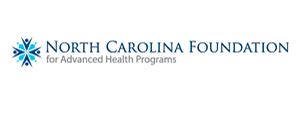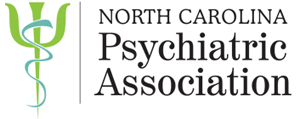Wilmington Health: Health Care Reform “In the Trenches”
- Nov
- 12
- Posted by TAC News
- Posted in Featured Organizations, TAC Consortium News
- off
Governor McCrory and Secretary of the NC Department of Health and Human Services Aldona Wos, MD, visited Wilmington Health last summer as part of their statewide tour of accountable care organizations (ACOs). The McCrory administration supports Medicaid reform that incorporates accountable or value-based care, and the visiting officials wanted to learn how this emerging model works on the ground and in the trenches.
Wilmington Health, as well as Cornerstone Health Care in High Point and Triad HealthCare Network in Greensboro, the other ACOs the governor and secretary visited, proved an excellent example. A physician-owned, multispecialty group practice with more than 160 providers, Wilmington Health was able to show and tell the visiting dignitaries just how they have been able to improve quality of care, reduce costs and provide excellent patient experiences.
Philip Brown, MD, President of Wilmington Health and a vascular surgeon, was quoted in the local newspaper after the visit as saying he and his colleagues had an “outstanding” discussion with McCrory and Wos. “We have proven through our Medicare work that it can be done: to increase quality of care at lower cost. Over time, you learn and you get better and better. It’s high time that we have better-performing practices and do what needs to be done for Medicaid.”
Wilmington Health, which has been providing health care to the Wilmington region for more than 40 years, began its transformation to value-based care about five years ago. This required a complete culture change guided by the top leadership with process improvements coming from those on the frontlines. Success also meant all members of the care team staff had to buy-into and understand the metrics used to measure the success of each innovation.
Part of the Medicare Shared Savings Program (MSSP), Wilmington Health was able to show data in 2013 that revealed a 3-year trend of substantial savings to the Medicare system and improved health outcomes for its patients. For instance, in 2012 Wilmington Health showed an average total yearly expenditure by a Medicare patient at $7,019, down nearly 12 percent from the organization’s 2010 numbers and $2,844 less than all other recent MSSP participants.
This demonstrable progress had been achieved beginning in 2008, when the Board of Directors, inspired by the idea of collaborative, evidence-based medicine to transform and improve on the existing system, hired new leadership and embarked on their journey toward accountable care.
The new leadership set the tone and agenda for change, while those delivering care stepped up to improve the processes to better serve the patient. For instance, the group partnered with a regional university to implement a program to assist with the coordination and reconciliation of patient medications to improve patient compliance. The pediatric division instituted a foster child outreach program to increase compliance with preventative care in this at-risk population. Family medicine providers designed a program to help patients manage their weight and chronic conditions such as diabetes. Participants in this particular program have seen an average weight loss per patient of 50 pounds.
This philosophy of process improvement coming from the “bottom up” is part of LEAN management techniques, which require the people doing the work be the ones to improve the work.
An important part of this collaboration was the formation of one of the first commercial accountable care organizations in the state with Blue Cross Blue Shield of North Carolina. Also, improved relations with the local hospital have been crucial to success.
The third central element to the transformation to a value-based model has been collecting and analyzing the data necessary to track the progress being made. An early adopter of an Electronic Medical Records (EMR) system, Wilmington Health installed special software to better mine the data in its EMR.
On a recent visit, Jonathan Hines, MD, Chief Medical Officer at Wilmington Health, proudly pointed out the charts posted in a main hallway in the clinic showing pertinent metrics for how each doctor’s total diabetic patient population was faring for the last month. There also were charts showing each physician’s percent of pneumococcal vaccination for the last month as well as other clinical quality measures.
“In the past doctors could look at patients one at a time, but they can’t look at entire groups at one time and really assess how well they’re doing,” Hines explained. “We’re making this information transparent to the individual physician so they can start to problem solve in areas where they’re not doing as well as they’d like.”
While the aggregate information for doctors on how they’re doing with entire populations of patients is informative and can help them get a new perspective on the care they deliver, the ultimate beneficiaries are the individual patients themselves. Patient satisfaction, care coordination and prevention are all categories in which the practice is assessed by the Centers for Medicare and Medicaid Services, if the group is part of the Medicare Shared Savings Program, for instance. Improved quality not only is translating into cost savings for the system, but healthier patients.
While every accountable care organization is different and organic in how it develops, as Dr. Brown told the Governor and Secretary, “all ACOs have one commonality. We’re all trying to get at the triple aim: demonstration of quality at reduced cost in a patient-friendly environment.”
Recent Posts
- Pioneer ACO Model Generates Medicare Savings, Independent Report Reveals
- NCMS Foundation Seeks Rural Providers for ACO Opportunity
- CMS Announces Next Generation ACO
- NC ACO Collaborative Draws Crowd to Raleigh
- Move Toward ‘Pay for Quality’ Accelerates With HHS Announcement
Archives
- May 2015
- March 2015
- February 2015
- January 2015
- November 2014
- October 2014
- March 2014
- January 2014
- November 2013
- October 2013
- September 2013
- August 2013
- July 2013
- June 2013

































